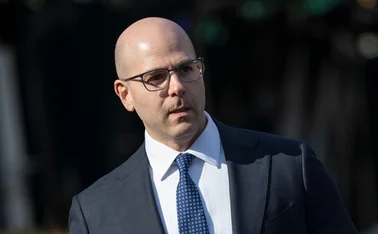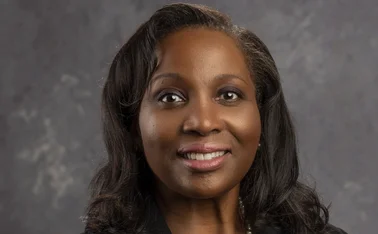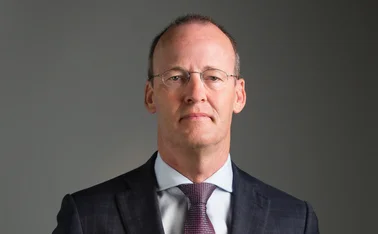
The future of central banking: CB.com panel
In the post-financial crisis world, the role of central bankers everywhere is shifting, said a CentralBanking.com panel, led by Robert Pringle, chairman of Central Banking Publications, on Thursday.
In a Central Banking ON AIR debate, panellists discussed the key policy and institutional debates facing central bankers.
"The aftershocks of the financial earthquake that hit North America and Europe in 2007, and which nearly brought down the world's banking system a year later, continue to be felt across the world," said Pringle. "Central banks are at the centre of efforts to contain the continuing fallout of the crisis and reform the system."
Central banks face at least three key challenges: first, to help restore banking and financial markets, so they can at least carry out their basic economic functions; second, to support efforts to avert the threat of a renewed economic slowdown; and third, to help lay foundations for a healthier financial system, and in particular to improve crisis prevention.
Paul Mortimer-Lee, London-based global head of market economics at BNP Paribas, Kevin Dowd, a professor emeritus at Nottingham University and Charles Goodhart, formerly a professor at the London School of Economics and now a member of the financial markets group at the university, joined Pringle on the panel.
The discussion began with consensus on the huge scale of change in the central banking world. "Central banking has got a lot tougher," said Mortimer-Lee, who expressed both mirth and concern over the way in which the world of central banking has changed. "Central banks have got away, in reputation terms, with a lot," he said. "And they have come away with their powers enhanced – strangely – you fail and then get more powers, for example over regulation. There is a tendency to look to central banks to provide the answer to get us out of this crisis, and I think that might be over-burdening them, asking too much."
Goodhart highlighted the mistakes of yesteryear. "Central banks used to think a combination of success in achieving their inflation target and guaranteed price stability combined with the application of the Basel II capital adequacy accord would guarantee price stability, and they discovered it did not.
He lamented that central banks had previsously "ignored" the whole problem of financial stability, thinking they had it under control. "Now they have discovered that they haven't and they are struggling to come up to speed," Goodhart said.
"Central banking has become a lot more interesting," said Dowd. "And this is a very, very bad development."
Harking back to the days when "good, old fashioned central banking was limited, boring, conservative," Dowd criticised policy responses to the financial crisis as having been "extremely" counter-productive.
"The idea that we need loose money to respond to a crisis that was itself caused by loose money seems to me to be a serious mistake," he said. "As the crisis evolves, it becomes more and more threatening, and we have now reached the point where the solvency of the central banks themselves is compromised. We are spinning out of control with the wrong policy responses."
Current policy
Sticking with the discussion of the current policy stances at key central banks such as the US Federal Reserve, the Bank of England, the European Central Bank and the Bank of Japan, panellists were asked whether they would vote for more stimulus if they were sitting on the respective monetary policy boards.
"I'd go for it big time," said Mortimer-Lee. "There is far too much debt, we have to reduce it somehow."
"The problem is that quantitative easing (QE) has worked by increasing confidence in liquidity and asset markets, and that was the previous problem," said Goodhart. "Quantitative easing hasn't worked in the way people hoped."
Now, he said, was the time for central banks to be brave. "There is a need for a lot of innovative and original thinking and a preparedness to try things out, which might be regarded as almost inappropriate for a central bank to do. But under the current conditions, which I regard as really dangerous, the central bank has to be prepared to think outside the box."
Dowd was opposed to further stimulus of any sort. "I don't believe we can use macro or central bank policy levers to fix the banking system. If we look at the US, it is much more clear cut, they are on a path to very serious inflation and they have check-mated themselves. They cannot raise interest rates without bringing the financial system down, and yet they must raise interest rates for monetary policy purposes."
Future shifts
Looking to future policy stances, Dowd called for an end to the dual mandate, giving central banks a better chance to focus on inflation targeting.
Mortimer-Lee was concerned that "if you are credible on inflation, problems come out elsewhere".
Goodhart said he believed inflation targeting was a "great success". But that "financial stability is much harder than price stability, as it is hard to know when asset prices are unsustainable".
There was much apprehension about the future close co-operation between politicians and central bankers, with independence of the central bankers a key priority.
With the evolution of macroprudential policies, Goodhart suggested it would be prudent to separate crisis prevention efforts from those relating to crisis solution. "Independent action by the central bank to assist crisis prevention is essential," he said. Expressing his unease over the idea that the new Financial Policy Committee in the UK will mean the Bank of England is also in the driving seat on the crisis solution side, he stressed he thought this area should ideally be "driven by Treasury".
Dowd agreed that political interface is a problem and went on to express his dissatisfaction with the concept of macroprudential policy. "I think macroprudential policies are a smokescreen. It's well intended, but it's clearly not going to work. You can't second-guess the market, it's going to end in tears. No agency can do this [manage the financial system], I would simply leave it to the markets. I would withdraw lender of last resort, let them stand on their own feet."
"There is a clear danger to central bank independence by getting involved in regulation," said Mortimer-Lee. "Government and central banks will now have to work even closer together."
China strategy
Turning to the situation in China, there was alarm over the policy in action there, with Goodhart urging the Chinese to shift their "business plan" more towards domestic growth, so that the rest of Asia can do the same and allow the world to rebalance.
"China has got to change, otherwise we are in trouble and they are too," he said. "China is the de facto leader of the Asian economies, and countries such as South Korea, Thailand, Malaysia and so on, can't move in that direction [towards improving domestic growth] unless China does."
Only users who have a paid subscription or are part of a corporate subscription are able to print or copy content.
To access these options, along with all other subscription benefits, please contact info@centralbanking.com or view our subscription options here: www.centralbanking.com/subscriptions
You are currently unable to print this content. Please contact info@centralbanking.com to find out more.
You are currently unable to copy this content. Please contact info@centralbanking.com to find out more.
Copyright Infopro Digital Limited. All rights reserved.
As outlined in our terms and conditions, https://www.infopro-digital.com/terms-and-conditions/subscriptions/ (point 2.4), printing is limited to a single copy.
If you would like to purchase additional rights please email info@centralbanking.com
Copyright Infopro Digital Limited. All rights reserved.
You may share this content using our article tools. As outlined in our terms and conditions, https://www.infopro-digital.com/terms-and-conditions/subscriptions/ (clause 2.4), an Authorised User may only make one copy of the materials for their own personal use. You must also comply with the restrictions in clause 2.5.
If you would like to purchase additional rights please email info@centralbanking.com







